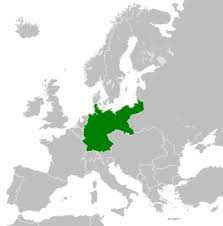Here’s a clean, ready-to-use way to compare the sustainability of political systems with a single, comparable score.
Sustainability Wealth Formula (SWF)
SWF = (0.25·Governance + 0.15·RuleOfLaw + 0.15·Fiscal + 0.15·Innovation/Human + 0.15·Environment + 0.10·SocialCohesion + 0.05·Resilience) × 10
- Score each factor 0–10 (0=poor, 10=world-class).
- Multiply by weights, sum, then ×10 → 0–100 Sustainability Wealth Score (SWS).
Factor definitions (10-second rubric)
- Governance: effectiveness, policy consistency, checks/balances
- Rule of Law: judicial independence, corruption control
- Fiscal: debt dynamics, tax capacity, long-term liabilities
- Innovation/Human: education, R&D, talent attraction
- Environment: decarbonization, biodiversity, resource intensity
- Social Cohesion: trust, inclusion, inequality, polarization
- Resilience (5%): diversification, shock absorption, disaster readiness
Example Comparison (illustrative scores)
Sustainability Wealth Score (SWS) – Comparative Snapshot
Weights: G 25%, RoL 15%, Fisc 15%, Innov/Human 15%, Env 15%, Soc 10%, Res 5%
| System / Country (proxy) | SWS (0–100) | One-line assessment |
|---|---|---|
| Nordic social-democratic parliamentarism (Denmark) | 88 | World-class governance + trust; green + innovation lead; small-market exposure is the constraint. |
| Consensus + direct democracy (Switzerland) | 87 | Very high institutional quality and fiscal prudence; strong cohesion; careful but steady on climate. |
| Coordinated corporatist democracy (Germany) | 77 | Robust governance and industry base; transition headwinds but high adaptive capacity. |
| Parliamentary social market (Austria) | 75 | Solid rule-of-law and human capital; optimize fiscal/innovation pace and depolarize to climb. |
| Liberal federal presidential (USA) | 69 | Top-tier innovation and resilience; cohesion, environment, and fiscal balance pull down the mean. |
| Meritocratic hybrid (Singapore) | 82 | Execution excellence, human capital and fiscal strength; resource/space constraints are structural. |
| One-party developmental state (China) | 66 | Scale and infrastructure gains; rule-of-law, environment, and cohesion risks cap the score. |
| Illiberal democracy (Hungary) | 57 | Short-term stability, but institutional erosion + cohesion drag long-run wealth sustainability. |
| Rentier monarchy (UAE) | 65 | Strong fiscal/administrative capacity; diversification + environmental intensity are key constraints. |
| Resource-dependent autocracy (Russia) | 42 | Weak governance/Rule-of-Law and high external risks limit sustainable wealth creation. |
Note: Scores are illustrative to show how to apply the formula; plug in your own 0–10 inputs to update SWS.





